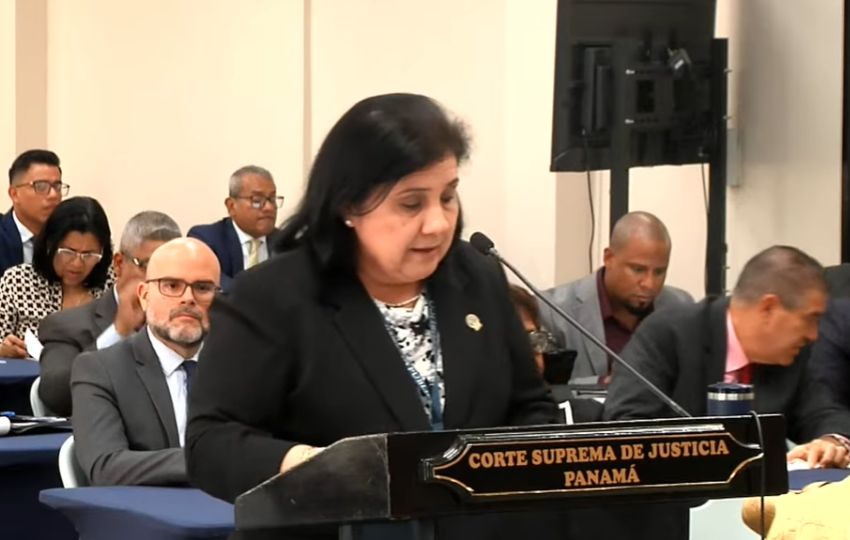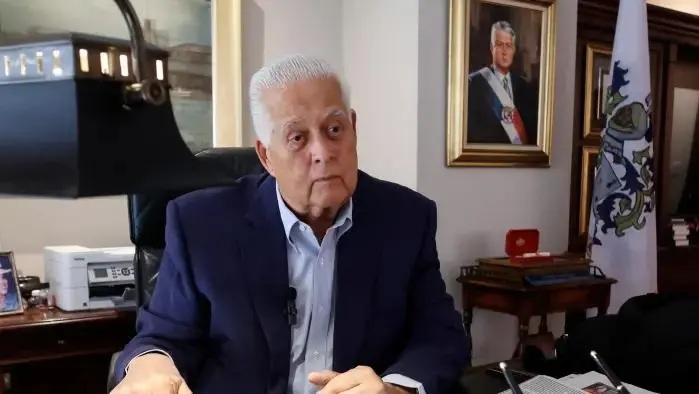Judges wiretap decision creates concerns

A JUDGE’S decision to move from jail to house arrest two former National Security officials implicated in a widespread spying program, has created widespread protest. andraised concerns about thedirection of multiple corruption cases now under investigation.
Representatives of civil society and victims of wiretaps conducted during the previous government repudiated the decision by 16th Criminal Court Judge Enrique Pérez to move Gustavo Pérez and Alejandro Garuz from El Renacer prison to house arrest.
Magaly Castillo, director of the Citizen’s Alliance for Justice, described the decision as “disappointing” because the men allegedly violated the human rights of the victim.
Castillo said that society must remain vigilant of the decisions of the judges in the proceedings involving members of the last government.
Castillo also described the three-year sentences that the men are facing as “laughable” reports La Prensa.
She said that in this case the additional problem is that the telephone and email interceptions were used to extort people for the simple fact of being political opponents of Ricardo Martinelli’s government.
Ramón Ricardo Arias, president of the Panama chapter of Transparency International, said that the criteria used to release the suspects was a “mystery” to him, and that violations of privacy are a very serious offense that should be treated as such.
Roberto Troncoso, an expert on the subject of human rights, said that while society needs to be respectful of the judge’s decision, these offenses are some of the most serious of human rights violations.
Troncoso said that the violation of the right to privacy, when it is done repeatedly with the intent to intimidate victims is more important than cases that are underway for stealing from the treasury.
He said that in said that in the 90’s the Supreme Court declared unconstitutional the rule that punished with a penalty of up to 10 years imprisonment for those who commit these type of crimes and that since that ruling has created a debacle in this area.
At the same time, he described as derisory the sentence of three years imprisonment in the Criminal Code for offenses against the inviolability of secrecy and privacy. This punishment is not going to limit the espionage.
Democratic Revolutionary Party (PRD) leader and a victim of wiretapping, Balbina Herrera said that the judge’s decision creates a bad precedent, because the damage caused to those affected is irreparable. She also called for a review of the Criminal Code, which imposes a mild sanctions for these crimes.
Mitchell Doens, another victim, said he opposes the change of preventive detention granted to Garuz and Perez, because the crimes of which they are accused represent a flagrant violation of human rights and were committed repeatedly by both men.
Pérez and Garuz are accused of overseeing a program to intercept the electronic communications of an estimated 150 people using surveillance equipment acquired from Israel.
The hearing involving the two men, as well as two other defendants who remain at large, began Monday and ended Wednesday.
Independent Deputy Ana Matilde Gómez said that judges have to base their decisions on evidence and not on what he or she feels is appropriate.
“What has to be respected is the evidence that exists on the record,” she said. “What we want is not what counts, it is what is on the record.”





